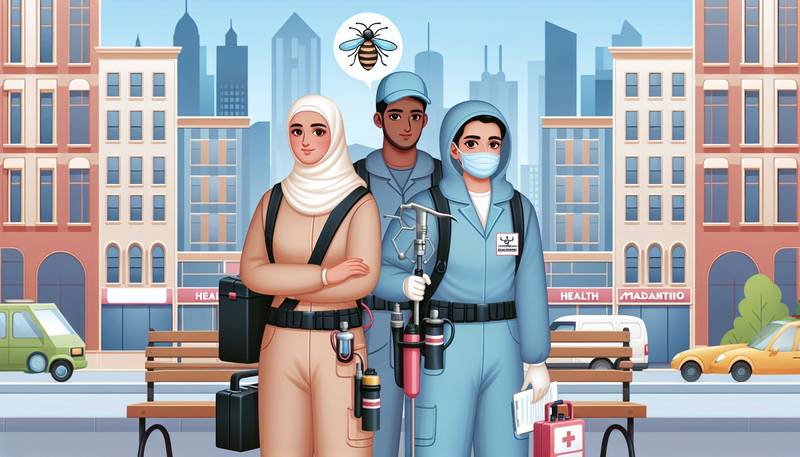Guardians of Health: The Critical Role of Pest Control Experts
In this comprehensive exploration, we delve into the vital significance of pest control experts as health guardians and delve into the various methods they employ to combat pests effectively.
Importance of Pest Control in Public Health
Pests represent a significant threat to public health, capable of spreading a host of dangerous diseases such as malaria, dengue fever, and Lyme disease. Moreover, these unwelcome intruders can trigger allergies and asthma attacks in vulnerable individuals. Through their expert pest control interventions, professionals help curtail disease transmission, safeguarding public health and well-being.
Methods of Pest Control
Pest control experts employ diverse strategies to manage and eradicate pests, each with its unique advantages and considerations:
Chemical Control: Pesticides are a common tool in the pest control arsenal, used to exterminate or repel pests. Carefully selected and applied in adherence to strict protocols, these chemicals mitigate risks to human health and the environment, effectively controlling pest populations.
Biological Control: Some experts opt for natural predators or parasites to keep pest populations in check. This eco-friendly approach minimizes reliance on chemical pesticides, fostering sustainable pest management practices.
Mechanical Control: Physical barriers and trapping mechanisms serve as effective measures to capture and remove pests from premises. By employing traps and other physical methods, professionals can manage pests without resorting to chemical solutions.
Integrated Pest Management
Integrated Pest Management (IPM) is a comprehensive approach that integrates various control strategies to tackle pest issues holistically. Professionals incorporate biological, chemical, and mechanical control methods, synergistically managing pest populations while reducing reliance on pesticides. Through IPM, pest control experts deliver effective services that prioritize public health and environmental protection.
Training and Certification
To meet the demands of their challenging profession, pest control experts undergo rigorous training and certification processes. Specialized courses cover essential topics such as pest identification, behavior, and control methodologies, ensuring professionals possess the expertise to address diverse pest challenges. Continual education and staying abreast of industry advancements are paramount, enabling experts to offer top-tier services that safeguard public health and ecological integrity.
Conclusion
Pest control experts stand as stalwart guardians of public health, tirelessly working to maintain safe and healthy environments for all. By adeptly utilizing a blend of chemical, biological, and mechanical control measures, these professionals combat pests effectively while mitigating the environmental impact of their interventions. Through their unwavering dedication and expertise, pest control experts serve as frontline defenders against pest-related risks, ensuring communities remain protected from the pernicious threats posed by pests and the diseases they carry.











